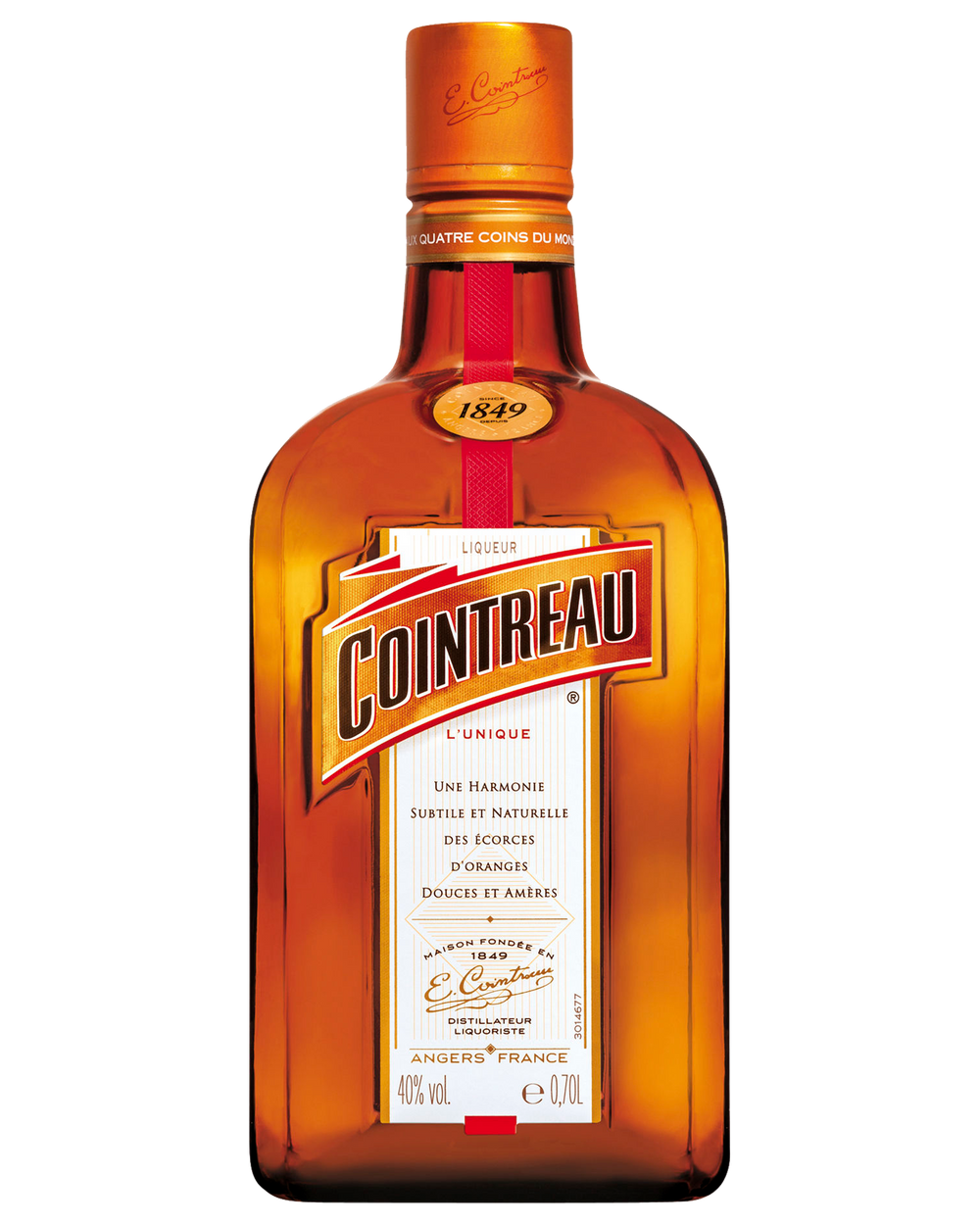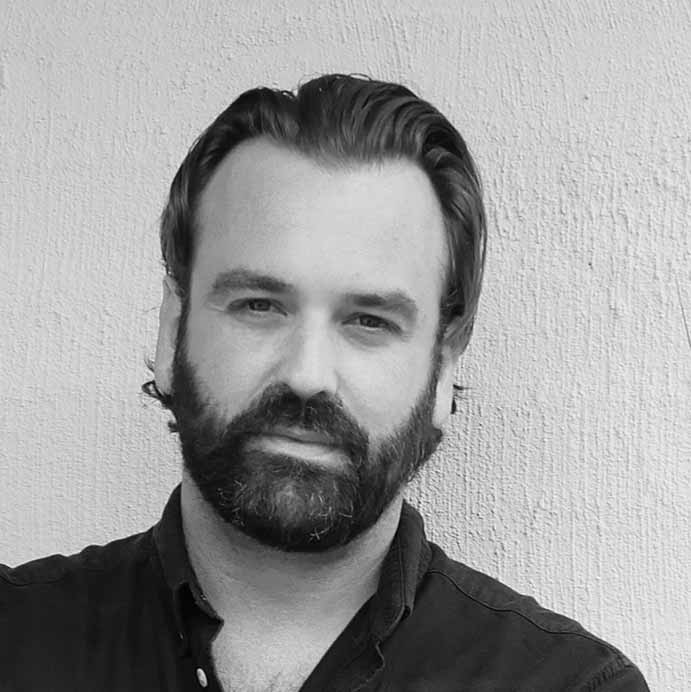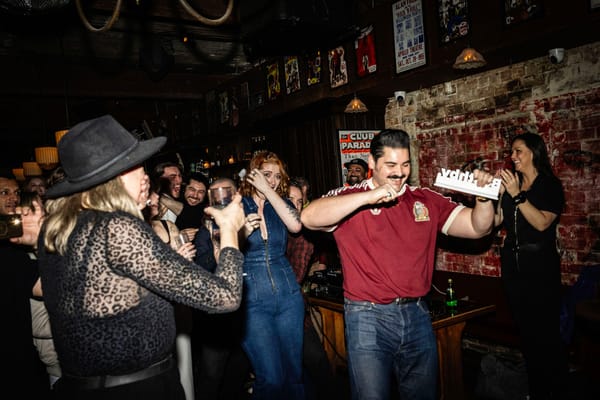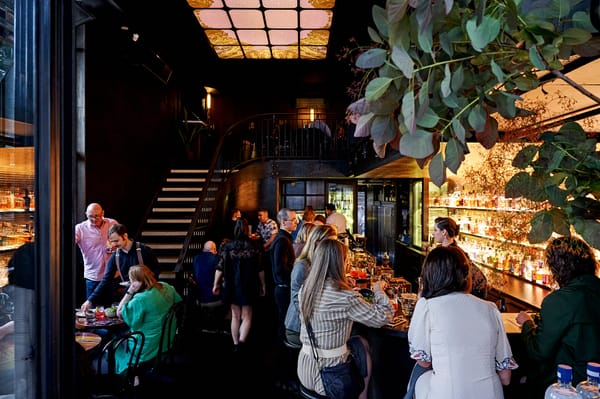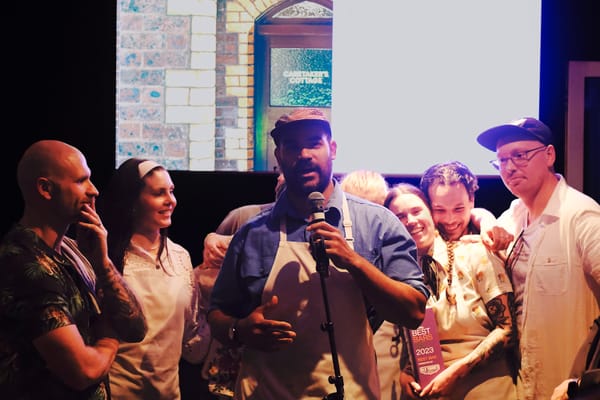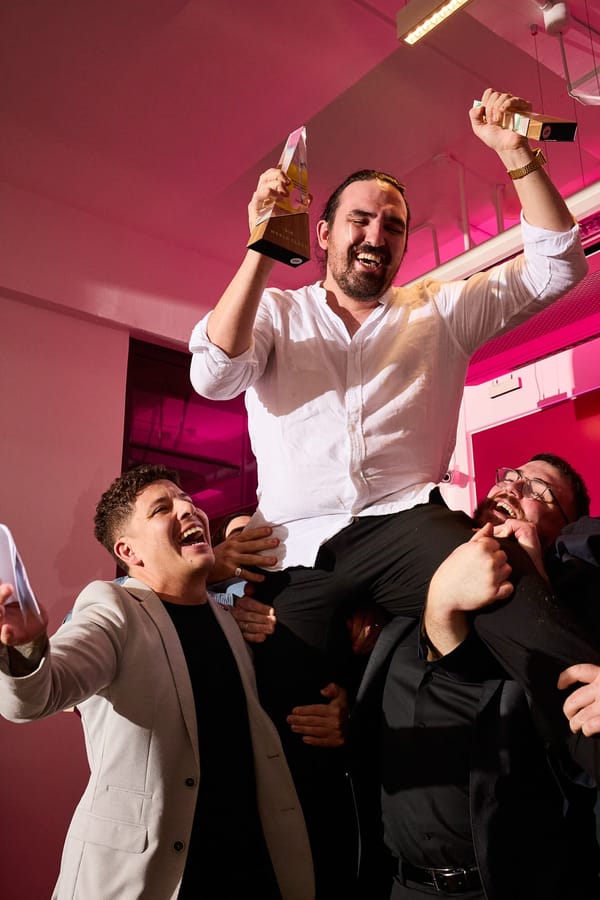The key to a great hotel bar, says Adam Lau, is to make it a neighbourhood bar
What do hotel bars do differently to other bars?
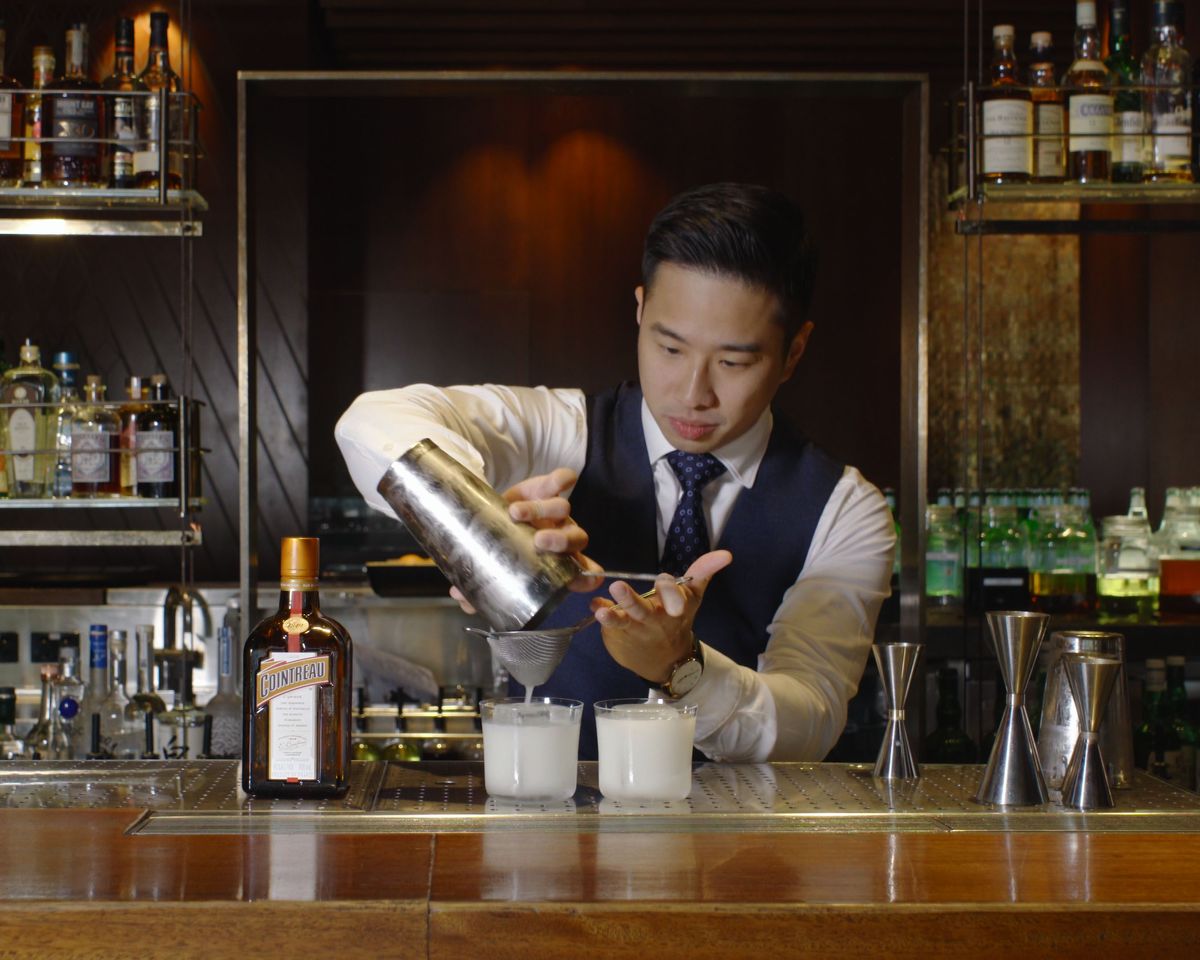
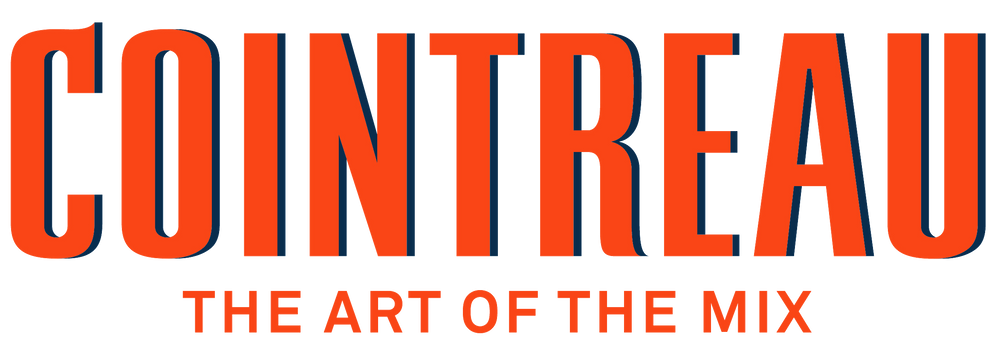
What makes a great hotel bar?
Of course, the answer is hospitality — that’s what makes any good bar great. But until recently in Australia, the standard of hotel bars wasn’t actually that grand — the drinks were of middling execution, with poor ice, bog-standard ingredients, and bartenders with only a passing interest in preparing proper cocktails. You’d get a passable Martini, perhaps, but venture further than a Manhattan and you were on shaky ground.
There were notable exceptions: Zeta at the Hilton in Sydney, the old Water Bar at the W Hotel back in the early 2000s.
Over the last decade, though, that has begun to change, and it’s thanks to hotel bars like Grain at the Four Seasons in Sydney.
But here's the thing — bar manager Adam Lau doesn’t like to think of Grain as a hotel bar.
“It’s more like a neighbourhood bar, I would say,” he says.
What they’ve achieved at Grain is to bring service to the forefront, with a drinks program which impresses — they’ve got some very good drinking coming out of their barrel-aged cocktail program, which is one of the largest programs in the country.
So below, lightly edited and condensed for clarity, get the full interview with Lau.
Sam Bygrave: For people who haven’t been here yet, what’s the big idea behind Grain?
Adam Lau: So it’s more like a neighbourhood bar, I would say. First of all, we have a really good location in the middle of Circular Quay, and also, at the Four Seasons Hotel Sydney. The concept behind the bar is that it’s a cocktail slash whisky bar. All the cocktails and food that we do is all inspired by grain. So there’s a grain element in each and every single cocktail and food [item] that we do. You get your normal rye, corn, barley, etc, etc. But there’s also rice, buckwheat, millet, that we want to explore and see the potential of all those grains as well.
Right. How did you come to be working behind the bar?
It’s a long story. I’m from Hong Kong, I didn’t really know what I wanted to do. And and it was my mum who told me, “Hey, you like staying in hotels, you want to give hotels a go?” And I’m like, Okay. I’ve always wanted to know a little bit of everything, because I think that’s super cool, as a guy, as a man. You know, when you want to talk about wine, you want to talk about marketing, finance — you can talk a little bit of everything right?
Then you can talk to anyone, right?
Yes. And I think that’s like super cool. Then I’m like, okay, let’s give it a go. I signed myself up in college in Adelaide, and then after my first year, I fell in love with hospitality.
So you went to Adelaide?
I studied there and I worked in other places in Australia as well, and this is my fifth stop. So yeah, after my first year studies, I actually fell in love. And it’s really about the energy. It might sound very cliche, but it is the people, the energy. And back then I still didn’t really know if I really want to work in a bar or bartending. I didn’t know. But then I thought the one thing that I knew was that I like food and beverage. So then I thought, okay, if I want to be successful in food and beverage, I need to be good at something. I need to have a competitive edge. So it’s either you’re really good at food like a chef, or wine like a sommelier, or spirits like a bartender.
So why did you get into spirits then? Why not a chef? Why not a somm?
When I first started, I saw a bartender up behind the bar. I’m like, I want to be that guy. I’m like, that guy looks cool, he’s shaking drinks. He’s laughing. He’s having fun. Let me try to be a bartender, and try and create that experience as well. Of course, when I first started, I didn’t know nothing about spirits. I didn’t know nothing about — I couldn’t even tell you what a vodka was.
That’s awesome. So it’s a hotel bar, but it’s a neighbourhood bar — have you worked in a few hotel bars now?
I’ve always spent my time in hotels. I used to work at the Langham, then Sheraton, and then Hilton — this is my fourth brand.
So what do you hotel bar guys have to do that is different to a regular bar in terms of service?
Well, I guess I guess people have different expectations. That’s for sure.
What are what are those? What do they expect?
Well, it’s a given that the cocktail needs to be good. If you if you come to a bar, or any bar — it doesn’t need to be hotel bar, right? If you go to a bar, that’s people’s expectation.
People expect a good good cocktail at a pub now.
Correct. So so that’s a given, you know, and what’s more important is that it’s that emotional connection, I would say, because you can get a Margarita anywhere, you can get a good cocktail anywhere, but it’s really the people that make a difference, right? That’s why the whole team is empowered to sort of make their own friends, make their own regulars, you know. At the end of the day, it’s all about the emotional connection. There’s always new bars opening is always better looking bars, there’s always new openings. But what what makes it important is the people.
How do you do that? When you have some guests who maybe you’ll see here once a year, some will be more regular, some will stay once and never come back? How do you try to form that emotional connection when it can be sort of — it’s not like they’re coming in every week?
Well, you you’re gonna be surprised, people actually come back every like, we have regular guests that they come maybe once or twice a year just for business trips and stuff like that. And every time they come and just look for us, oh, is Marco still here? Or I’m still here?
So you’ve made an impression on them the last time.
Yeah. That’s very important. And also, we do have a system in the hotel that we make sure that we recognise our returning guests, that we welcome them back to the hotel, and also just to the brand itself. So let’s say if they stay at a different Four Seasons in Hong Kong, for example. And then now they’re in Sydney, we welcome them back to the brand. We actually personally reach out to them. Can I invite you for drinks? I would love to meet you, welcome back to the brand really.
That seems pretty intense.
Yeah. Because the Four Seasons, we don’t have a loyalty program, okay? And it’s because a lot of the loyalty programs, people come back for the rewards — and that’s not real loyalty. But people come back to the Four Seasons. It’s really because of, for sure, the brand, and also the people.
I mean, it’s classic hospitality though, right. Remember people, be nice to them? What are some things about working in a hotel bar that other bartenders probably don’t know about or understand?
I guess it’s the level of service. The service ritual. Like really small things, right. We have a standard, we have a service sequence. So every guest, it doesn’t matter which Four Seasons you go to, you always can expect to have the same level of service. When you arrive at the bar, you get greeted, we offer two or three different seatings for them to choose from? It’s a bunch of sequences that we follow. So the basics are there, and what makes it different for each and every single hotel or hotel bar, in particular, is the people and also the character, the personality.
Because you wouldn’t want it to be robotic, right? Because that takes out the hospitality. Correct?
Correct. So the basics are there. And then whatever’s on top, it’s really up to the server.
So what do you encourage your team to? How do you encourage your team to behave with your guests?
I mean, just be yourself, right?
Well not everyone’s great as themselves...
Well, that comes back to hiring and selection.
Yeah.
When when we look for people, when we look for talents, we don’t really look for the skill set that they have, because these are the things that we can train, I believe. But personality and hospitality is not something that we can train, it comes from within. I can’t really show you how to be hospitable. And that’s what we look for, you know, it’s the personality, it’s the character. Be yourself, have fun. And for me, that’s very important. It’s a long shift, you know, eight hours, 10 hours easily — if you’re not having fun, it’s hard.
This story was made possible with the support of Cointreau. Cointreau is an aromatic feat and owes this impact to a complex blend of orange peel essences. Zesty, fresh, floral, sweet… With a spectrum of more than 40 olfactive notes, Cointreau is a captivating ode to orange on its own and an enhancer of other flavours when mixed.
